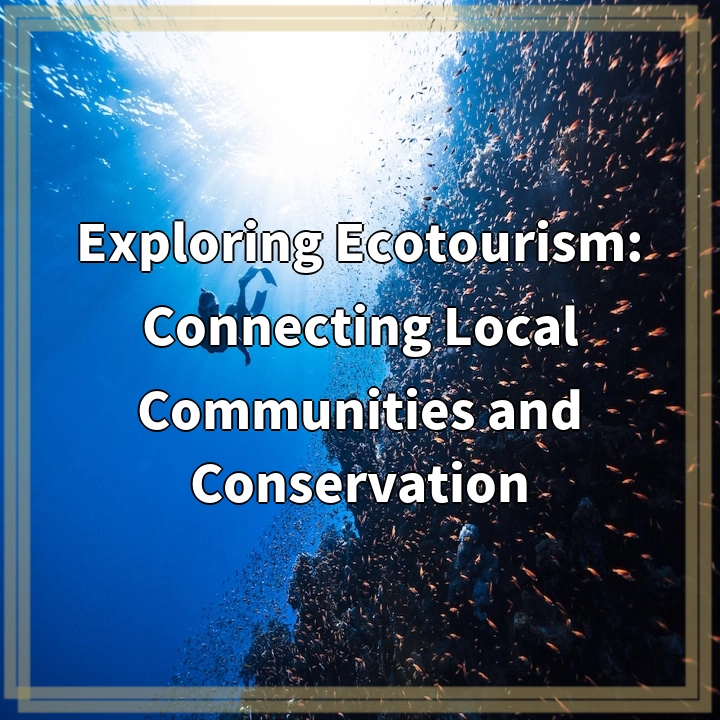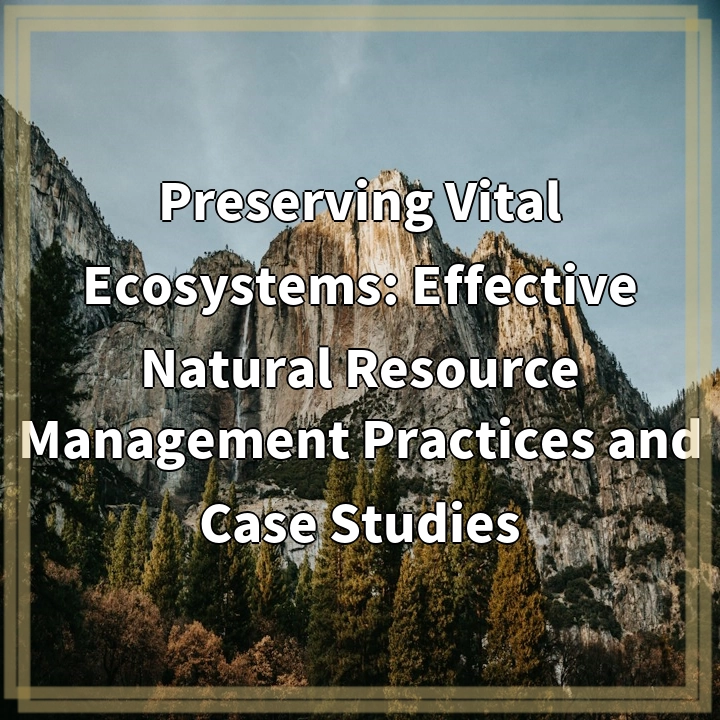
What is Ecotourism?
Ecotourism is a form of tourism that focuses on responsible travel to natural areas while promoting conservation, supporting local communities, and minimizing negative impacts on the environment. It aims to educate visitors about the importance of protecting and preserving natural resources, cultural heritage, and biodiversity.
Real-World Problems associated with Ecotourism
1. Overdevelopment and Infrastructure
One of the challenges facing ecotourism is the potential for overdevelopment of natural areas to accommodate increasing tourism demand. In some cases, improper planning and infrastructure development can disrupt ecosystems, damage habitats, and threaten the very attractions that drew visitors in the first place. Striking the right balance between providing necessary facilities for tourists while preserving the integrity of the environment is crucial.
2. Negative Socio-cultural Impacts
Ecotourism can also have unintended negative impacts on local communities and their cultures. If not managed properly, tourism can erode local traditions, exploit indigenous cultures, and disrupt traditional livelihoods. It is important to prioritize the involvement and empowerment of local communities and to ensure they receive fair economic benefits from tourism activities.
3. Wildlife Disturbance and Conservation Challenges
In ecotourism, the primary goal is to experience and appreciate the natural world and its wildlife. However, irresponsible tourist behavior, such as excessive noise, feeding or touching wildlife, and encroaching on protected areas, can have negative effects on the animals and their habitats. Conservation efforts must be implemented to protect these fragile environments and educate visitors on responsible behavior to minimize disturbance.
4. Greenwashing and Lack of Regulation
A significant challenge in the ecotourism industry is the issue of greenwashing, where businesses falsely claim to be eco-friendly without implementing sustainable practices. This misleads consumers and undermines the credibility of genuine ecotourism initiatives. Lack of standardized regulations and certifications further complicate the situation. Establishing clear industry standards and enforcing effective regulations are vital to ensure the authenticity and integrity of ecotourism efforts.
5. Climate Change Vulnerability
The impacts of climate change, such as rising sea levels, extreme weather events, and shifts in ecosystems, pose a significant challenge to ecotourism destinations. Fragile ecosystems, such as coral reefs or polar regions, are particularly vulnerable. Adaptation strategies and sustainable practices, such as reducing carbon emissions and promoting climate resilience, need to be integrated into ecotourism planning to mitigate the effects of climate change.
Conclusion
Despite the challenges, ecotourism offers immense potential to support conservation efforts, promote sustainable development, and connect local communities with global travelers. By addressing the real-world problems associated with ecotourism and implementing responsible practices, we can ensure that this form of tourism continues to provide positive environmental and socio-cultural benefits for future generations.

Solutions to Real-World Problems in Ecotourism
1. Sustainable Development and Planning
Implementing proper planning and sustainable development practices are essential to prevent overdevelopment and infrastructure damage. This includes conducting environmental impact assessments, setting carrying capacities for tourist sites, and investing in eco-friendly infrastructure and energy sources. Collaboration between stakeholders, including governments, local communities, and businesses, is crucial for effective planning and decision-making.
2. Community Engagement and Empowerment
Engaging and empowering local communities is crucial for successful and sustainable ecotourism. This includes involving community members in decision-making processes, ensuring they have equitable access to economic benefits, and providing opportunities for local businesses and cultural initiatives to thrive. Collaborative partnerships between communities, tour operators, and NGOs can help foster community ownership and pride in their natural and cultural resources.
3. Education and Responsible Tourism Practices
Educating both tourists and local communities about responsible tourism practices is essential to minimize negative impacts. This includes promoting guidelines for wildlife observation, emphasizing the importance of respecting cultural traditions and norms, and raising awareness about conservation and environmental stewardship. Engaging visitors through interpretation programs, guided tours, and informative signage can help foster a sense of responsibility and respect.
4. Certification and Regulation
Establishing standardized certifications and regulations is crucial for ensuring the authenticity and credibility of ecotourism initiatives. These certifications should be based on rigorous criteria that assess environmental, socio-cultural, and economic sustainability. Governments and industry organizations can play a key role in implementing and enforcing these certifications, ensuring that businesses adhere to sustainable practices and preventing greenwashing.
5. Climate Change Adaptation and Mitigation
In light of climate change, it is important to integrate climate resilience and mitigation strategies into ecotourism planning. This includes promoting low-carbon transportation options, reducing energy and water consumption, supporting local climate change adaptation projects, and raising awareness about the impacts of climate change on ecotourism destinations. Collaboration with climate scientists and conservation organizations can help develop effective strategies for climate resilience.
Conclusion
By implementing these solutions, we can overcome the real-world problems associated with ecotourism and ensure that it contributes positively to conservation efforts, supports local communities, and promotes sustainable development. With responsible practices and collaborative efforts, ecotourism can become a powerful tool for raising environmental awareness, fostering cultural exchange, and protecting our natural heritage for future generations.















